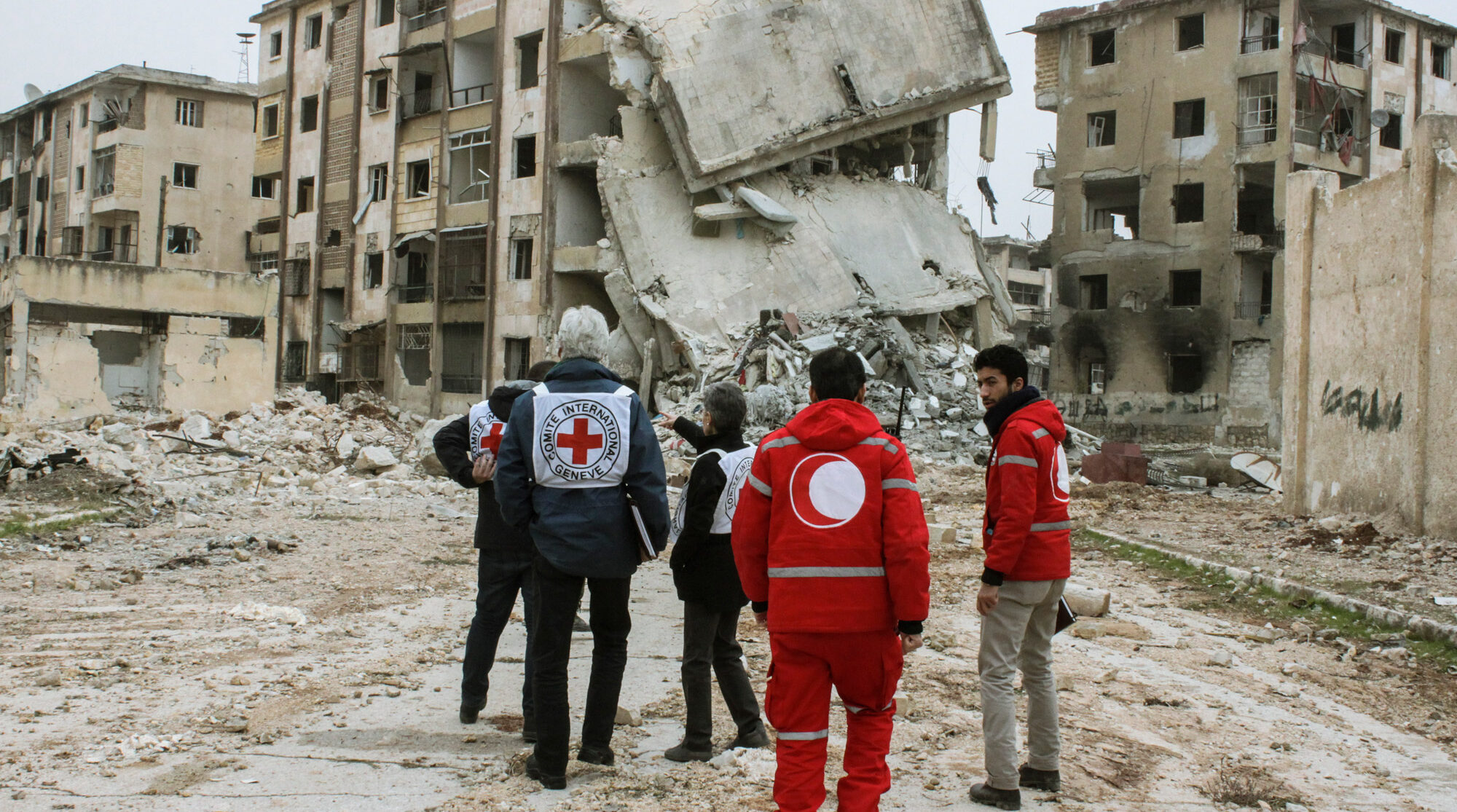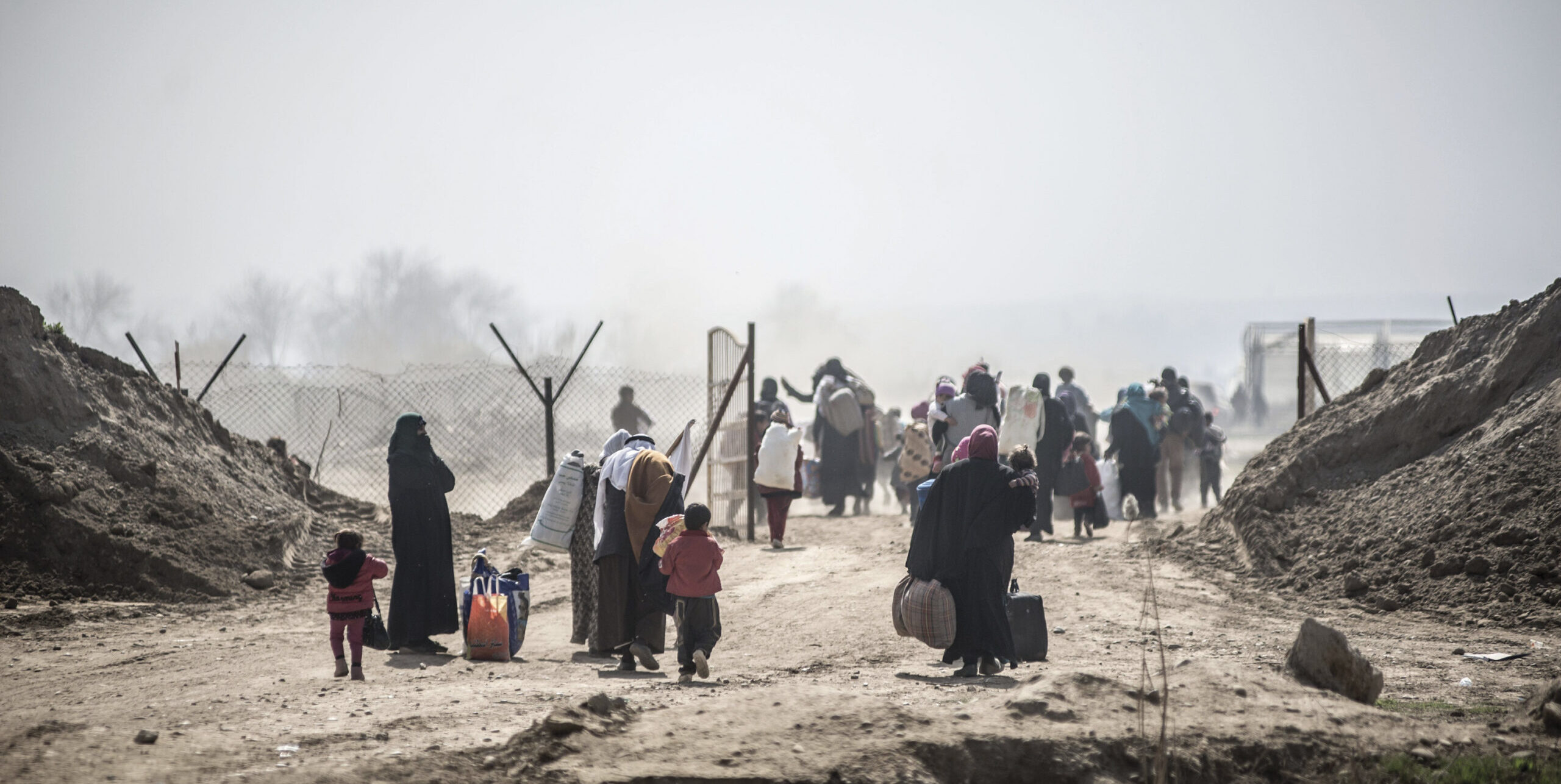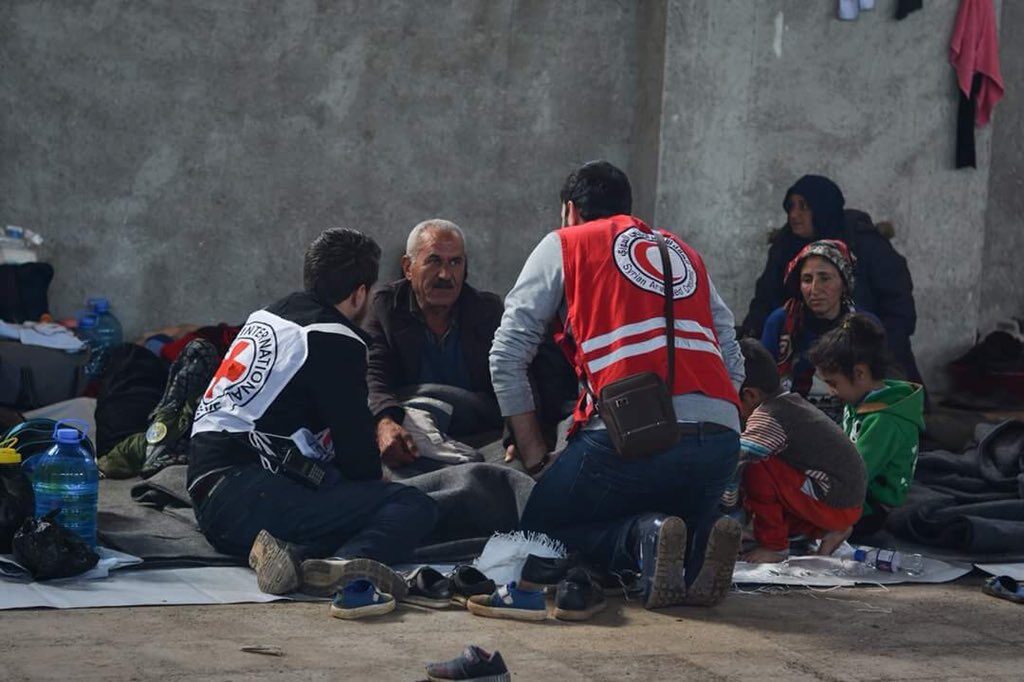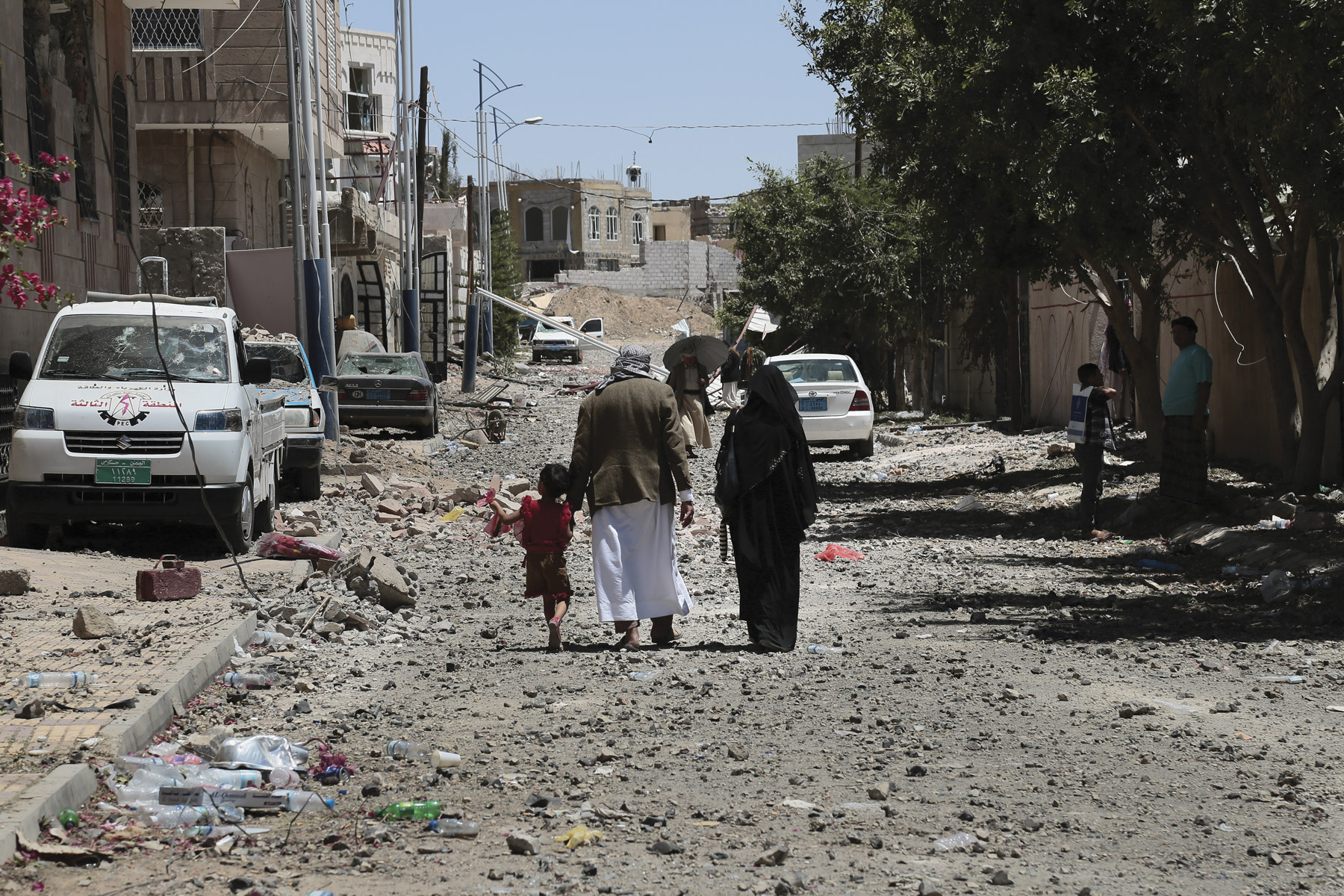What we do
Our approach
Partnering for Change has a developed a unique and innovative approach to improving access to prevention of and care for non-communicable diseases (NCDs) in humanitarian settings. We conduct research and needs assessments that inform all our field projects, patient resources and joint advocacy initiatives.
The field projects are designed to improve care for people living with NCDs, particularly diabetes and hypertension and lessons from these projects inspire further research and drive improvements.
The patient resources are developed based on available scientific evidence to empower patients, taking into account their specific needs and the local context. Through our joint advocacy efforts we raise awareness about and aim to mobilise resources to improve NCD care in humanitarian settings.

EASTERN ALEPPO, MASAKEN HANANO DISTRICE, SYRIA. The ICRC and the Syrian Arab Red Crescent assess the living conditions for people who decide to come back once it will be possible. © ICRC: TURKMANI, Sevim
Research
Partnering for Change carries out needs assessment and analysis, mapping gaps in healthcare and developing innovative solutions to optimise care in humanitarian crises. Our projects and interventions are systematically monitored and evaluated to continuously improve, maximise their impact and best serve the interests of vulnerable people in humanitarian settings. Together with our global academic partner, the London School of Hygiene and Tropical Medicine (LSHTM), we also conduct academic research. We aim to have produced several journal publications, issue briefs and policy briefs, as well as other research materials, all of which are freely accessible below.
Field projects
Based on our research and needs assessments we develop evidence-based field projects to reduce the impact of non-communicable diseases (NCDs) and improve care for people with diabetes and hypertension in humanitarian crises. Field projects are carefully designed and implemented to ensure availability of basic equipment and supplies in health facilities, and to improve the accessibility of essential medicines relevant to diabetes, for example insulin, and hypertension care.

SANA’A, FAJ ATTAN, YEMEN
Damage to civilian buildings following the fighting.
© ICRC: THOMAS GLASS

© ICRC
Patient resources
Partnering for Change has recently, as part of activities of the Danish Red Cross in Lebanon, launched patient education materials adapted to the local, Middle-Eastern and humanitarian context. The patient resources, which are based on scientific research and evidence, are to be used in a clinical setting to educate and empower people living with non-communicable diseases to take care of themselves and live well.
Joint Advocacy
The partnership engages with civil society, community leaders, businesses, policymakers and governments to raise awareness about the importance of addressing non-communicable diseases (NCDs) in humanitarian crises at global, regional and local levels.

SANA’A, FAJ ATTAN, YEMEN
Damage to civilian buildings following the fighting.
© ICRC: THOMAS GLASS



